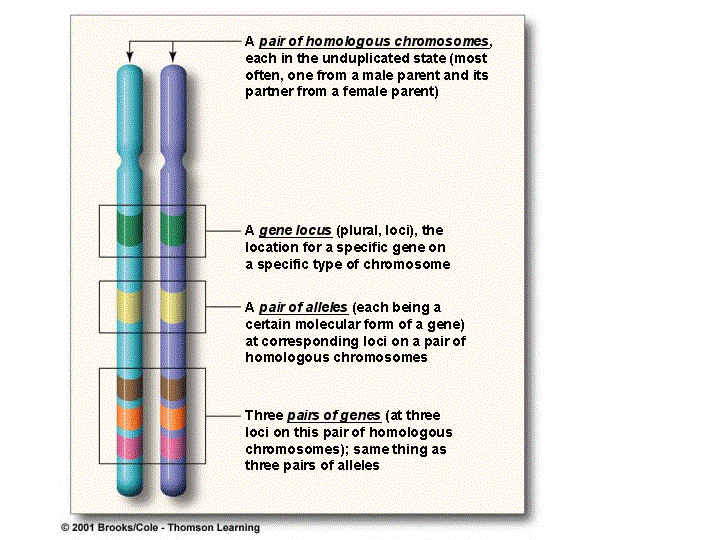
Development of Modern Genetics
The modern study of genetics began with the rediscovery of Mendel's work in 1884. By 1882, Walter
Flemming had observed threadlike chromosomes in the nuclei of dividing cells. By 1887, Weismann
suggested that meiosis halves the number of chromosomes when gametes are made. By 1900, Mendel's
work was finally appreciated. Particularly his view that diploid cells have two units for each
trait and that the units segregate during gamete formation.
Genes and Chromosomes
Genes are units of information about heritable traits that have particular locations or loci
(singular is locus) on particular chromosomes. In humans, one homolog of each chromosome is
inherited from each parent. Pairs of chromosomes that are similar in structure and function are
called homologous chromosomes.
PREVIOUS
NEXT
LECTURE 7 INDEX
MAIN INDEX

